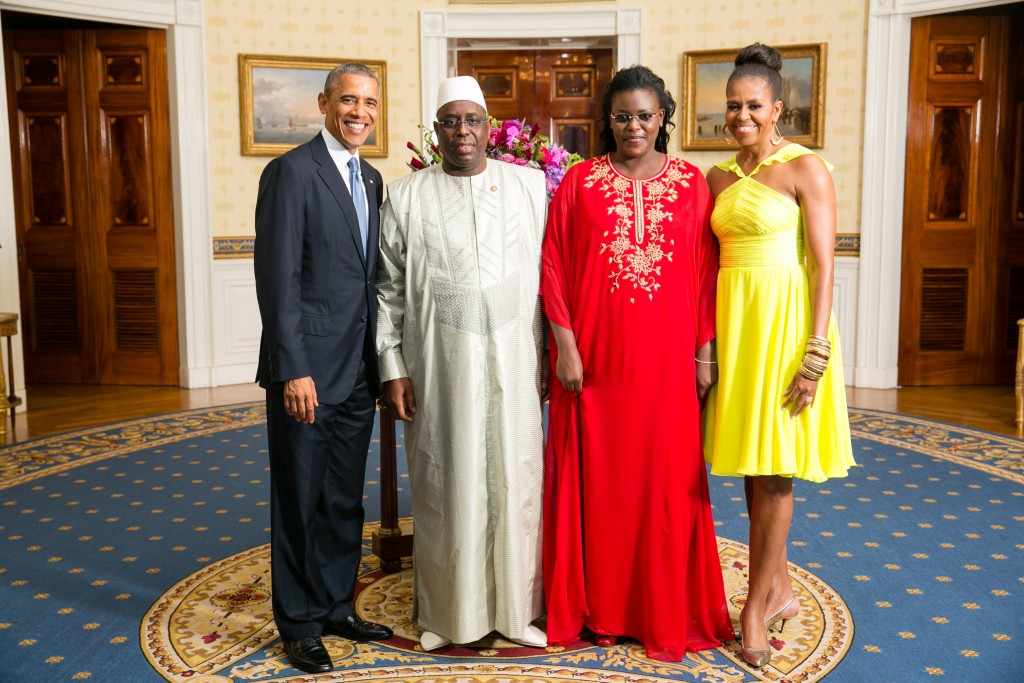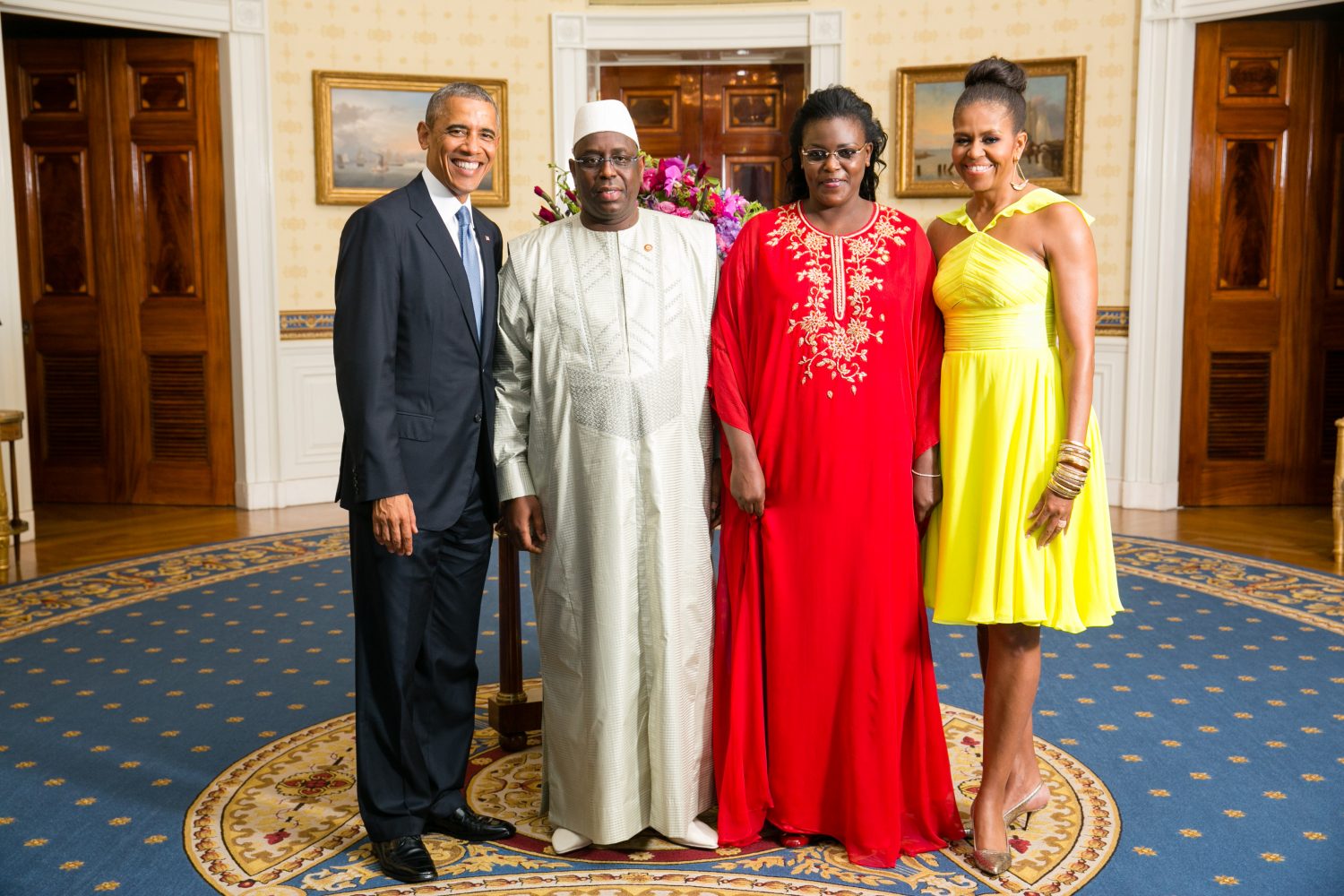Senegal’s president Macky Sall makes good on promise to reduce term length

By Jibril Ture
The president of Senegal, Macky Sall, told the press on Tuesday in Dakar that he intends to organize a referendum next year to reduce the term length in his country, a move in sharp contrast to the growing trend on the African continent where many heads of state have tampered with the constitution to extend their grips on power.
Most constitutions throughout the world provide for four- or five-year terms, but the current constitution of Senegal allows the president to serve a seven-year term. President Macky Sall wants to reduce the term length to five years, to keep one of the campaign promises he made three years ago. “I was elected for seven years” the president said on the outset of the news conference, adding: “next year, I will propose the organization of a referendum to reduce my mandate.” This will be part of a broader move to revise the Senegalese constitution in May 2016. “Have you ever seen presidents reduce their mandate?” Sall asked rhetorically. “Well I’m going to do it,” he said. The Senegalese leader also said: “We have to understand that we, too, in Africa can set an example [and show] that power is not an end in itself,” the president pointed out.
Sall’s plan stands in sharp contrast to developments across Africa—including his own Senegal—a region where leaders routinely organize constitutional revisions to remove term limits to remain in power. This sometimes leads to large-scale violence.
Dakar, the usually tranquil capital of Senegal, was rocked by violent anti-government protests on June 23, 2011 over the imminent passage of a bill intended to amend the constitution to the advantage of then-President Abdoulaye Wade, 85, who had announced his intention to run in 2012 for a third term. Under the proposal, the president wanted to reduce the proportion of votes needed to win a presidential election from more than 50% to 25%, thereby eliminating any run-off. The bill also created the elected position of a vice president.
But the protests forced President Wade to withdraw the bill, and part of the civil society and the opposition demanded that he renounce his intention to run, while others demanded that he step down immediately. Most Senegalese viewed the bill as a clever political manoeuvring on the part of Wade to usher in his son, Karim Wade, then-head of the multi-sector Ministry of International Cooperation, Air Transport, Infrastructure and Energy (MICATTI). (His countrymen used to poke fun of him by calling him “the minister of heaven and earth.”)
But that was four years ago. The African political theatre has often been shaken in more recent years by similar attempts to tamper with the constitution. Just as lawmakers in the West African nation of Burkina Faso were poised to vote on October 30th of last year on a plan put forth by the government of then-President Blaise Comparoe to allow him to change the constitution to stand for re-election again—28 years after he came to power in the aftermath of a coup—tens of thousands of protesters took to the streets in Ouagadougou, the capital, and Bobo Dioulasso, the second largest city, to violently protest the move. The popular revolt resulted in Compaore stepping down to flee to neighboring Cote d’Ivoire, with dozens of deaths reported and damage to buildings estimated in the tens of millions of cfa francs, the local currency.
The day before, in Benin, south of Burkina Faso, a large crowd estimated in the tens of thousands took to the streets to protest the apparent reluctance of the president of that country, Yayi Boni, to organize the past-due municipal elections. The perceived reluctance raised the suspicions of the opposition, the civil society and a large segment of the population about the president’s presumed intention to stay in power beyond his two-term limit that comes up in March 2016. “The hell with Yayi Boni,” “Yayi Boni we want new elections,” “Yayi Boni get out, we are fed up,” were some of the slogans chanted by the crowd that also carried banners hostile to the president. That was just the most recent popular outcry over President Yayi’s policies that has led to unprecedented social tension born out of the opposition and the civil society’s persistent claim that the president rigged the 2011 election, which he won on the first round “by k.o,” leading to the coining of the word “k.o.cracy”—read “democracy by k.o.”
In the Democratic Republic of Congo, 42 people lost their lives as a result of massive protests this past January against a bill viewed as President Joseph Kabila’s attempt to stay in power beyond his hitherto 14-year rule.
Despite the loss of lives and the damage to infrastructure, these protests are small compared to the regional-scale revolts witnessed three years ago in North Africa. A few, rather timid attempts in Sub-Saharan Africa to mimic the Tunisian-born Jasmine Revolution that has tolled the bell of a few Arab leaders previously believed to be untouchable have led to no revolution. A couple of years ago, a handful of Cameroonian protesters found themselves face-to-face with nervous security forces in Yaounde, but the protesters had no choice but to retreat.
However, events such as the October 30th revolt that ousted Compaore—a leader who, for decades, had worn the mantle of “peace maker” in other African countries shaken by violence until his turn came to face the music—are seen as the indication that voters in black Africa may be coming out of their deep sleep.


